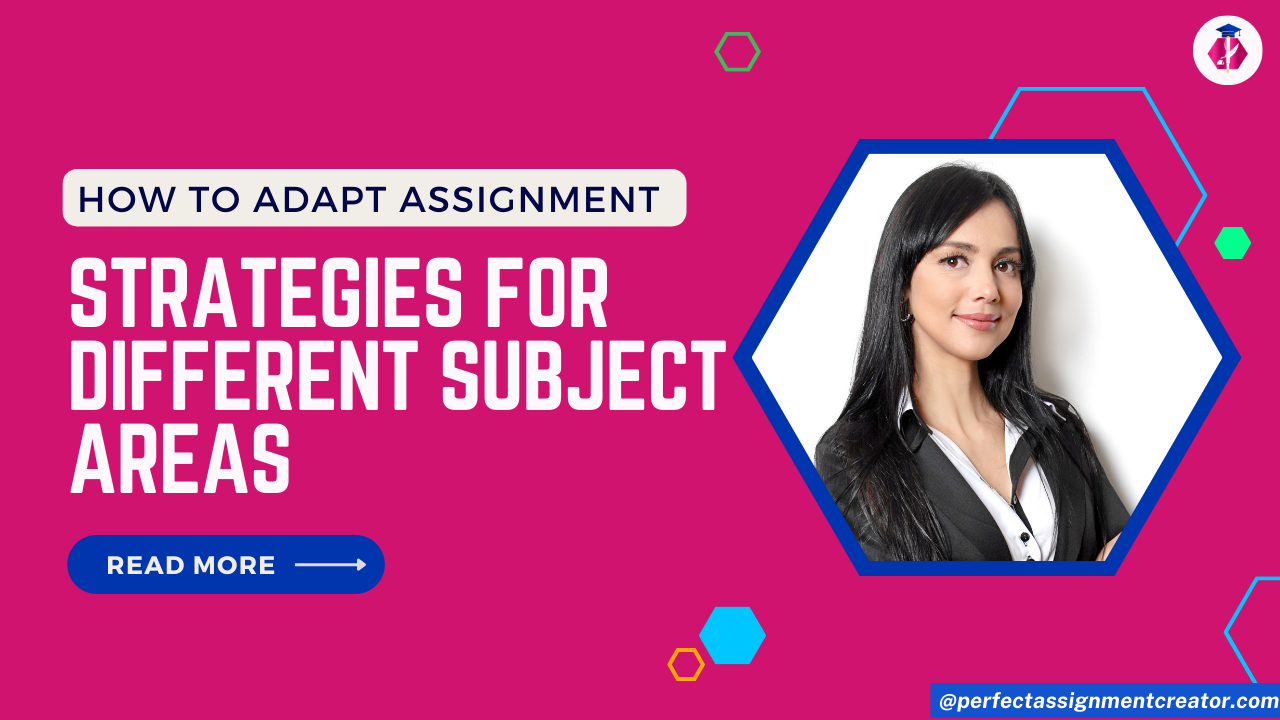How to Adapt Assignment Strategies for Different Subject Areas

The strategies in the assignment must be modified to make it more presentable, as well as strategies that may improve the quality of the assignment by analysing the contents and aligning with their subject areas. People have struggled to grasp and utilise their ability to identify, reflect on, and take actions to control their ideas, feelings, emotions, behaviours, and destinies since long ago. There has been great progress in understanding many self-management aspects during the last quarter-century. Numerous significant elements of self-regulation that have been discovered and studied (e.g., motivational and cognitive management strategies) are addressed, as well as the numerous settings in which they may be used (e.g., grown-ups, mathematics, and reading instruction; attempt management programmes). The skill aspect examines understanding themselves as a student, specific academic activities, and the environment. Understanding oneself being a learner is critical since it is required for metacognitive consciousness and the ability to deliberate strategically about study. Understanding one’s learning skills and weaknesses, as well as one’s mental state, inspiration, and anxiousness towards learning, are all part of this process. This information is important for conditional understanding because it informs learners of areas where they might expect issues during a certain situation, helping them plan to prevent or minimise these issues.
On the other hand, one other skill component is knowledge of various types of academic activities, as well as an understanding of what must be done to effectively complete a specific academic activity (e.g., writing an academic paper), including understanding the procedure that needs to be carried out as well as the period that should be necessary. This has a direct impact on the idea of conditional information by describing what must occur in order to attain an intended result.
Strategic learners must also understand the learning context to understand the academic environment, personal instructor’s thoughts and requirements, and their assessment of the value of a course. The pupils learn critical conditional knowledge. Suppose students recognise the relevance of what they learned in the programme for their future goals. In that case, they may realise the need to gain information about and adopt procedures for permanent retrieval sooner. This implies that students understand which strategies help them with long-term knowledge retrieval. This is where the Model of Comprehensive Learning’s learning techniques element comes in.
For example, how their academic records can evaluate their performance? How does the course content relate to their future academic, personal, or professional goals? Teaching and linking these strategic learning traits to effectively implementing cognitive learning methods. Of course, more than just knowledge of approaches and the environments in which they will be used is essential. Students must understand their goals and how they affect their academic performance. As stated previously, strategies are just tools used to attain goals. The deployment of tactics, or their absence, is heavily influenced by the student’s goals and motivating orientation. Students must assess their goals and reason for attending university before undertaking strategy instruction. As a result, strategy adaptation may benefit students in their subject areas to understand the key areas by analysing and aligning with different types of strategies; it may also be beneficial for them to improve their cognitive and emotional behaviour regarding subject knowledge.




